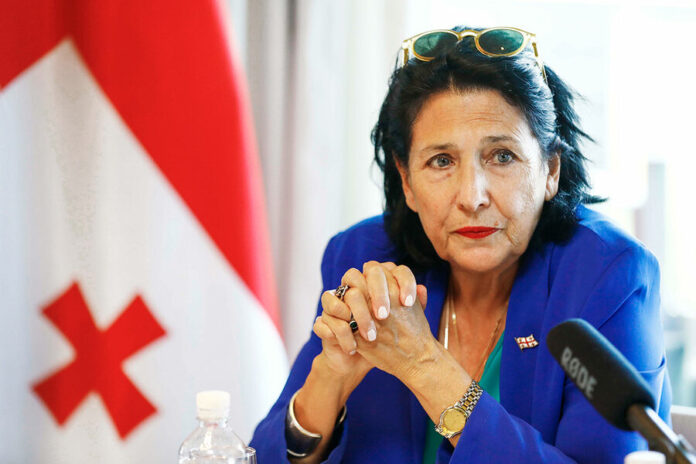In a recent development, the founder of Georgian Airways, Tamaz Gaiashvili, has declared that the country’s president, Salome Zourabichvili, is prohibited from utilizing the services of the national airline. This action comes in response to Zourabichvili’s statement declaring her intention to boycott the airline due to its decision to resume flights to Russia. The ban was announced by Gaiashvili after demanding an apology from the president to the Georgian people. The situation arose after Russia lifted a four-year ban on direct flights with Georgia and abolished the longstanding visa requirement for Georgian citizens traveling to Russia.
President Zourabichvili had urged Georgian authorities to counteract the Russian initiative, but her appeal was disregarded. While some Georgian officials welcomed the resumption of flights, a segment of the Georgian population, who advocate for distancing the country from Moscow in favor of closer ties with the European Union, demonstrated against the move in central Tbilisi. A significant number of Georgians oppose any rapprochement with Russia, especially due to the presence of Russian troops in the breakaway regions of Abkhazia and South Ossetia, which together constitute approximately one fifth of Georgia’s territory.
While there are Georgians who hold a more open stance towards improving relations with Moscow, President Zourabichvili has cautioned that deepening ties with Russia could potentially jeopardize Georgia’s future prospects of joining the European Union. The president’s role in the government is primarily ceremonial, and her relationship with the government has been strained. The response from President Zourabichvili to the ban imposed by Georgian Airways’ founder is yet to be seen. This development highlights the contrasting views within Georgia regarding its relationship with Russia and the European Union, with some advocating for closer ties and others vehemently opposing any further alignment with Moscow. The dynamics of this situation continue to unfold as the country navigates its foreign policy decisions and future aspirations.


